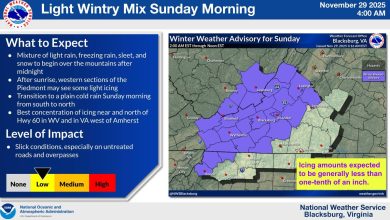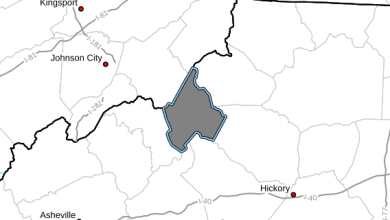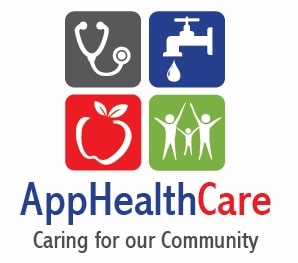
Last Updated on January 29, 2021 7:58 pm
Some students attending in person instruction at Appalachian State began returning to Boone and campus this week.
Students with residence hall contracts began returning to campus on Thursday, Jan. 28 — move-in continues through Sunday, Jan. 31, according to an update from the university on Friday night.
Dr. Sheri Everts, Appalachian State Chancellor, said in a Friday night update – “At last count, 24% of spring semester courses will be taught in person, and 76% will be taught in fully remote and hybrid formats.”
In remarks Dr. Everts gave to the High Country Economic Kickoff event on Thursday she also stated that required face coverings and daily health assessments, physically distanced seating in classrooms, and enhanced cleaning and sanitation procedures are all still in place.
She also stated:
- We are continuing a robust COVID-19 surveillance testing schedule, providing important data to local public health so we can work together to identify and quickly respond to positive cases. So far we have conducted more than 35,000 Covid- 19 tests helping to keep community testing lines shorter while also protecting our university and community with accurate and early responses to positive cases. Also, last semester, we began preliminary wastewater testing research, which we will continue with our residence halls to help us further refine our targeted testing strategy.
- To date, we have provided nearly one hundred thousand face coverings to our campus community, and we are in the process of distributing five new washable, reusable face coverings to each student, faculty and staff member.
- The university has provided more than ten thousand meals to members of the university and greater community in isolation and quarantine, and we have fulfilled more than 40 requests from local agencies for lodging, personal protective equipment and other resource needs.
- App State will assist with North Carolina’s COVID-19 vaccination distribution plan for rural areas. We submitted an application to the North Carolina Department of Health and Human Services to be an open community site for vaccine distribution, so we may administer vaccines to community members — as well as to students, faculty and staff.
Dr. Everts also went on to say, “As everyone participating in this event today knows all too well, managing business operations during a global pandemic presents immense challenges. We have several strategies in place to help mitigate financial impacts on our Mountaineers and on the local community” They are:
- At the start of the pandemic, we immediately implemented essential spending guidelines to reduce costs and maximize opportunities for savings. We continue employing every avenue to reduce the impact on our employees. While some personnel have faced furlough, we are utilizing every option to keep our staff working, including reassignment of duties.
- We have awarded nearly seven million dollars in grants to students in need through the CARES Act and the university’s Mountaineer Emergency Fund, and have also added flexibility to our employee emergency loan program to make funds more accessible for employees facing hardship.
- During the pandemic, Governor Cooper declared construction projects as critical and essential. Our ability to continue making progress on projects across campus provides steady work for more than 300 workers, which helps power our local economy, and staying on time keeps us on budget, which reduces the impact of delayed projects costs to the state.
- This fall, we cut the ribbons on two of our four new residence halls, as well as Kidd Brewer Stadium’s north end zone facility, which will provide space for athletic, academic and community uses. The much-needed renovation of one of our most-used academic buildings, Sanford Hall, is nearly complete, and it will be open for spring 2021 classes. Laurel Creek Hall, our next residence hall scheduled to open in the fall, is well underway and will provide approximately 640 student beds.
Also in the Friday night update Dr. Everts said:
Since Jan. 1, we have conducted more than 4,562 COVID-19 tests, with a positivity rate of 2.8%. This is a significantly higher number of COVID-19 tests and a slightly lower positivity rate than when students began their return to campus for the fall 2020 semester. So far this week, we have conducted 923 COVID-19 tests with 19 positive results, or about 2%. Both our cumulative and week-to-date positivity rates are significantly lower than the state’s latest reported rate of 8.7%. We will continue to update our COVID-19 dashboard with weekly testing information on Mondays, in order to capture the Saturday testing data.
We do expect to see positivity rates rise some as students return, but our students, faculty and staff have demonstrated that they follow our on-campus COVID-19 prevention measures. We have had no documented classroom transmission of COVID-19. Our students, faculty and staff continue to regularly take advantage of our on-campus COVID-19 testing. Our spring testing strategy includes mandatory entry testing for students who live in residence halls and also benefits from faculty research that informs us as we continue with wastewater testing in our residence halls. We have also been pleased to see some improvement in the COVID-19 positivity rates in the state and locally, as well as significant improvements in the capacity of our local medical infrastructure.
Our cold storage units should be arriving soon for use in vaccine storage when doses become available. As I have mentioned in previous messages, our application to become a community distribution center for COVID-19 vaccines has been submitted to the North Carolina Department of Health and Human Services. Our team stands ready, and we are eager to assist in providing vaccines to faculty, staff, students and community members.

















